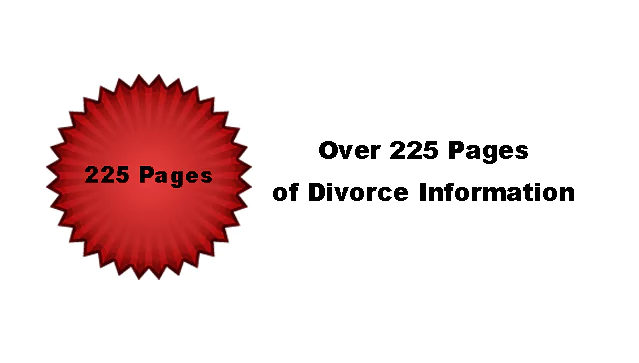Experienced, Aggressive Attorneys Ready to Fight For You
Quoted by:






Clearwater Divorce Attorneys Claudia Blackwell, Howard Ellzey, and Jason Coupal personally enjoy when clients are able to file an uncontested divorce. Those types of cases are the most positive, constructive way for people to begin their new life without the destruction typical of a high conflict case.
For our Clearwater Uncontested Divorce cases, we strive to:

Request a Free Consultation
- Keep your divorce or custody case uncontested – right till the end
- Gives you advice on potential outcomes in a contested case so you can negotiate the best deal
- Give you a technically correct agreement and filing package so future problems are eliminated
- Is available to represent you should your case become contested – and that brings significant legal resources to the table
Our Clearwater office is located in the Wilder Center, on Gulf to Bay Drive, near McMullen Booth Road. Call us for a free consultation at 727-844-7676
If you are fortunate enough to agree on an uncontested divorce, you should expect the following from your attorney:
1. Representation of your interests, and ONLY your interests
“Uncontested divorce” does not mean the same as an “unrepresented divorce.” In other words, your attorney only works in the interest of their client and no one else. Some attorney may tell you they represent both spouses. That statement and that arrangement is not allowed in the state of Florida. Even though we prepare documents for both sides, we are strictly interested in the success of our client.
2. The attorney should make you aware of arrangments that can “blow up” the final hearing
The fact is that many judges do not want to see certain arrangements, particularly for children. Judges do not like zero child support agreements. When our client requests a zero support arrangement we think carefully on what language to use – to justify the desired goal. But the most important thing is to advise the client of potential problems at the final hearing. Anyone can sugarcoat. Only good attorneys tell the good and bad side of your situation.
3. If things get tough your attorney should be ready to get tough on your behalf.
Most Clearwater uncontested divorce cases proceed quietly to the end. But a tiny percentage “blow up” because of a dispute between the spouses. Your attorney should be equally ready to “make peace” or “make war” depending on the situation. You need a fighter on your side just in case something happens.
4. Future problem avoidence
This is at the core of what a good attorney should do – help you avoid problems in the future. Your attorney must think carefully on potential future problems so you can future-proof your agreement today.
Free Consultations with our Divorce Attorneys
Hiring a divorce attorney is the most stressful time of your life
You may be thinking of getting a divorce, modifying your divorce judgment, or enforcing your judgment. We can honestly say the next few months will not be the best time in your life. But we can make a difference for you. Your bad situation may become better if you hire the best divorce attorneys for your situation. We can help.
Our goal is to make the experience better. We offer more information. We have a dedicated team of divorce attorneys.


Property Division in a Florida Divorce: Lingering Complications and Challenges
The division of property and financial liabilities during the uncontested divorce process will have a significant impact on each parties’ financial outlook following a marital dissolution. Florida is one of a majority of equitable property states. This means that all property is either considered marital property or separate property. Generally, marital property includes assets and debts acquired during marriage other than by inheritance or gift to one particular spouse. Separate property includes property acquired prior to marriage or via gift or inheritance. While marital property is divided equitably, which means fairly rather than necessarily equally, separate property typically is retained by the party who acquired the property. While these distinctions may seem straightforward, property and debt division during a marital dissolution can be extremely complex. We have provided an overview of some common property division issues that can complicate the process of negotiating a uncontested marital settlement agreement.
Ownership of a Family Business or Professional Practice: Even if these businesses are founded prior to marriage, one’s spouse may acquire an interest in the business to the degree marital funds are invested in the business. Further, income and profits from the business may also be considered marital property. Whether this is the situation or a family business is started during marriage, the value of the business must be determined and the marital and separate property percentages of the business evaluated. Many divorces involving a family business or professional practice require the use of one or more forensic accountants to analyze the assets, revenue stream, liabilities, inventory and other aspects of the business as part of the business valuation process. If you or your spouse own a business or professional practice, this can be one of the most complex property division issues.
Commingled Bank Accounts/Funds: Even if a spouse has a bank account that contains separate property funds when the parties are married, the account can develop a hybrid character if income earned during the marriage or other marital property funds are deposited in the account. When separate property and marital property funds are commingled in a single account, the funds must be “traced” to their initial source so that the appreciation attributable to each type of contribution can be calculated. The separate property contributions and appreciation associated with these funds will be retained by the account owner whereas the balance of the funds will be subject to equitable division.
Assets Posing Complex Valuation Issues: There are some assets that do not present much difficulty in terms of assessing their value. The value of fungible consumer goods or savings in a bank account that includes only funds earned or acquired during the marriage provide examples. While valuation of a real property like undeveloped land, commercial property and residential property can be slightly more difficult, real estate appraisals or property comparisons can be used to determine the value of such property. The process of calculating an equitable division of marital property can be more complicated if parties have assets that may not have an easily ascertained value, such as stock options, antiques, rare art or collectibles.
Family Residence/Retirement Accounts: For many married couples, these two assets may account for a substantial proportion of their net worth. While these assets often are acquired prior to marriage, they will frequently receive ongoing contributions from marital funds like the employment earnings of either party during the marriage. When marital funds are used to improve or maintain the family home or a spouse’s retirement account, a process similar to that conducted with commingled bank accounts must be conducted. A mathematical formula is used to determine the ratio of payments made during the marriage in comparison to the total number of payments made. The principle is divided based on these ratios with the ratios then used to determine how much appreciation to attribute to marital versus non-marital contributions.
Hiding Funds and Waste of Assets: Each party has a fiduciary obligation to the other spouse in a divorce which includes disclosure requirements and prohibitions on wasting of assets. If a spouse suspects his or her spouse is giving away marital property or “selling” such property in sham transactions to distort the equitable division of property, the other spouse may be entitled to an equalization payment. Further, the diversion of marital assets or funds to an elicit paramour may also entitle an aggrieved spouse to compensation to the extent that his or her interest in the marital property has been compromised. In other situations, a party may attempt to hide income from a spouse especially when the spouse charged with incomplete disclosure operates a business. An experienced Florida Divorce Property Division Lawyer will carefully analyze financial documents and may work with forensic accountants to ferret out such misconduct. Even if the two of you agreed to an uncontested divorce, signed an agreement, and proceeded to final hearing – the court has the right to reopen cases where there were hidden assets.
The key point to take away from this discussion is that property divisions in a divorce typically is more complicated than it may appear at first glance. Even if you have not decided to retain legal representation, it is important to seek legal advice from an Ayo and Iken legal team member who can identify potential challenges and complications given your unique situation.
We have offices in Clearwater and St Petersburg.
